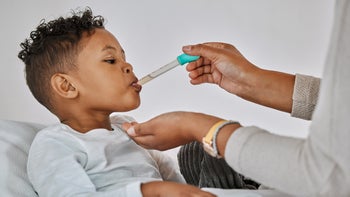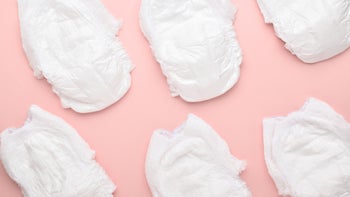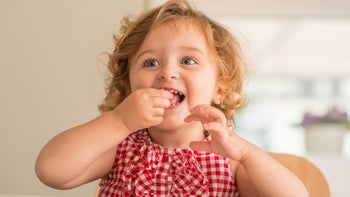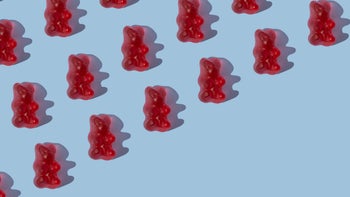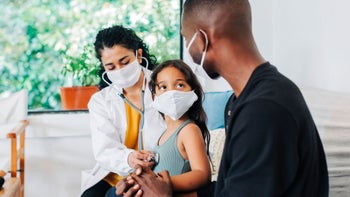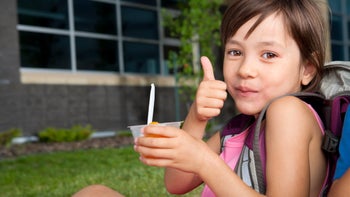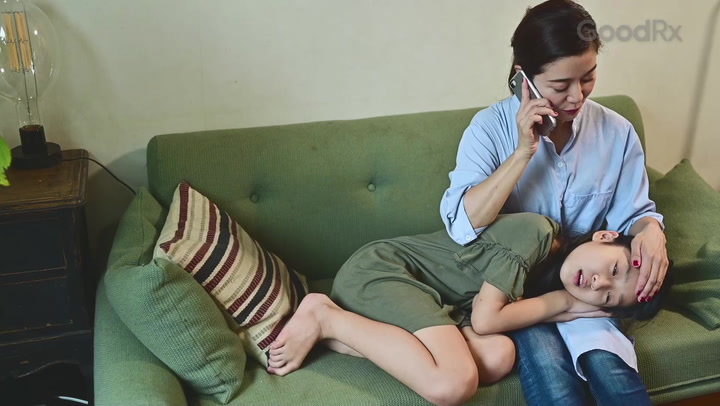
Is CBD Safe for Kids? There’s Not Enough Research to Say That It Is
Key takeaways:
Epidiolex is an FDA-approved, cannabidiol (CBD) based medication for children who have Lennox-Gastaut syndrome and Dravet syndrome.
It isn’t clear if CBD is an effective treatment for children with attention-deficit hyperactivity disorder (ADHD) or autism spectrum disorder.
Children can experience side effects from CBD medications and supplements, including sleepiness, appetite changes, and mood changes.

Cannabidiol (CBD) is one of the hundreds of active ingredients found in the cannabis plant. Cannabis oil that’s sold in over-the-counter (OTC) products is extracted from hemp. Hemp is a cannabis plant that contains less than 0.3% tetrahydrocannabinol (THC). THC is the chemical responsible for cannabis’s intoxicating effects.
These types of CBD products aren’t considered controlled substances, and they seem to be everywhere. And there are claims that CBD can help everything from sleep to inflammation.
Families are increasingly turning toward CBD to help their kids calm down, focus, and sleep. But just because products are “naturally delivered,” does it mean CBD products are safe for kids?
Search and compare options
Here’s what you should know before giving your child a CBD product.
Is CBD safe for kids?
It’s not clear.
Before 2015, when the Drug Enforcement Administration (DEA) eased some of the regulatory requirements, it was difficult to study CBD — especially in kids.
That means there are a lot of unanswered questions when it comes to CBD and kids. There’s some research on CBD dosing and what side effects children might experience while taking CBD. This information offers a starting point. But it’s only part of the story.
It will take time for researchers to definitively say whether or not CBD can help treat certain conditions in children. And it will take even longer to understand if children experience long-term effects from taking CBD products.
You also have to consider the safety of the actual product you buy.
Read more like this
Explore these related articles, suggested for readers like you.
CBD is considered a dietary supplement, and it’s not regulated by the FDA for safety or purity. This means you can’t be 100% certain about what’s in the CBD products you can find in stores or online. Some products may actually contain THC, which is unsafe for children and adolescents. There have also been reports of CBD products being contaminated with pesticides and heavy metals, which are also unsafe for children.
It’s important to point out that OTC CBD products aren’t the same as Epidiolex (cannabidiol). Epidiolex is an FDA-approved medication used to treat seizure disorders. It’s made from the cannabis plant too. Because Epidiolex is regulated by the FDA, people can be sure that the medication is free from THC and other contaminants. They can also be certain that the dose of CBD they need to take is the actual dose found in the product.
Epidiolex is FDA-approved to treat children as young as 2 years old who have seizures from Lennox-Gastaut syndrome or Dravet syndrome. So far, research shows that Epidiolex is effective for decreasing seizures. But Epidiolex only became available in 2018. This means that researchers are still learning about the long-term effects of using this medication.
Are there risks to giving a child CBD?
Yes. CBD is known to cause side effects in children.
In studies, children taking Epidiolex experienced several side effects, including:
Increased liver enzymes (a sign of liver injury)
Sedation, ranging from sleepiness to sleeping longer than usual
Suicidal thoughts and behaviors
Decreased appetite
Diarrhea
Difficulty sleeping and insomnia
Fatigue and lack of energy
Epidiolex is the best studied CBD product because it’s FDA regulated. It also contains higher levels of cannabidiol than are typically found in OTC products. But that doesn’t mean that OTC products don’t cause side effects too. In studies on OTC CBD products, children experienced side effects like:
Sleepiness
Decreased appetite
Irritability
Restlessness
Experts also warn parents not to be reassured by the claims that OTC CBD products aren’t as strong as Epidiolex. They point out that some OTC products contain 25 mg to 50 mg per dose. At this dose, it would only take a few gummies per day to reach the doses found in Epidiolex. That means children taking OTC CBD products can also develop the more serious side effects noted with Epidiolex.
What childhood conditions have been treated with CBD?
CBD is being studied as a potential treatment for several childhood conditions.
Seizure disorders
As mentioned above, CBD-based Epidiolex is being studied as a possible treatment for some seizure disorders. Epidiolex can lower the number of seizures children experience if they have seizures because of Lennox-Gastaut syndrome or Dravet syndrome. Both Lennox-Gastaut and Dravet syndromes are rare. It’s not clear if Epidiolex is as effective for children who have more common types of seizure disorders though. Epidiolex isn’t FDA-approved to treat other forms of epilepsy or seizures in children.
Autism spectrum disorder
Right now, it’s not clear whether CBD oil can help children with autism spectrum disorder.
Some studies show that some children had fewer emotional outbursts and were less aggressive while taking CBD. But other children actually had more outbursts while taking the medication.
Experts and advocacy organizations haven’t yet issued guidelines on whether children with autism should take CBD. There simply isn’t enough information yet to know if CBD is the right option for children with autism.
Attention-deficit hyperactivity disorder (ADHD)
Right now, there’s no high-quality evidence to support that CBD oil can help children with ADHD.
Most of the research around CBD and ADHD involves adults. There’s some evidence that CBD may help ease symptoms of ADHD in adults. But this evidence is based on small, and often weak, studies. A recent systematic review of adult research concluded that there wasn’t enough evidence to recommend CBD for the treatment of ADHD in adults.
There’s an ongoing study monitoring the effectiveness of CBD for ADHD symptoms in teens and young adults. This study may offer insight as to whether CBD can help teens with ADHD.
Until then, there simply isn’t any evidence that CBD is safe or effective for treating ADHD in children.
How much CBD can you give a child?
It’s not clear.
There are no standard CBD doses for children. There hasn’t been enough research to show what doses are safe for children to take based on their age or weight.
If you are concerned that you gave your child too much CBD, call your local Poison Control Center at 1-800-222-1222.
Seek immediate medical care if your child is experiencing any of the following symptoms after taking CBD:
Extreme sleepiness
Behavior changes
Slow breathing or difficulty breathing
The bottom line
OTC CBD products are widely available online and in stores. It’s not clear whether CBD products have long-term effects on children. It’s also not clear what doses of CBD are safe for children based on their age and weight. There’s no clear evidence that CBD can help treat children with ADHD or autism spectrum disorder. But CBD, in the form of Epidiolex, is FDA-approved to treat seizures in children with two rare conditions: Dravet syndrome and Lennox-Gastaut syndrome.
Why trust our experts?


References
Aran, A., et al. (2021). Cannabinoid treatment for autism: a proof-of-concept randomized trial. Molecular Autism.
Barchel, D., et al. (2019). Oral cannabidiol use in children with autism spectrum disorder to treat related symptoms and co-morbidities. Frontiers in Pharmacology.
Barnes, G. (n.d.). Is there research on the use of cannabis products with children with autism?
Barnes, G. (2019). Can CBD or THC help autism? Maybe, but there are many unanswered questions. UofL Health.
Campbell, C., et. al. (2017). Cannabinoids in pediatrics. Journal of Pediatric Pharmacology and Therapeutics.
Devinsky, O., et. al. (2018). Effect of cannabidiol on drop seizures in the Lennox-Gastaut syndrome. New England Journal of Medicine.
Efron, D., et al. (2023). Medicinal cannabis for paediatric developmental, behavioural and mental health disorders. International Journal of Environmental Research and Public Health.
Francisco, A. P., et al. (2023). Cannabis use in attention – deficit/hyperactivity disorder (ADHD): A scoping review. Journal of Psychiatric Research.
Greenwich Biosciences. (2018). Epidolex (cannabidiol) oral solution [package insert].
Hacohen, M., et. al. (2022). Children and adolescents with ASD treated with CBD-rich cannabis exhibit significant improvements particularly in social symptoms: An open label study. Translational Psychiatry.
Kachru, R., et. al. (2021). CBD use in children-Miracle, myth, or mystery? JAMA Pediatrics.
Khan, R., et al. (2020). The therapeutic role of cannabidiol in mental health: A systematic review. Journal of Cannabis Research.
Mansell, H., et. al. (2021). Pharmacokinetics and perceptions of children and young adults using cannabis for attention-deficit/hyperactivity disorder and oppositional defiant disorder: Protocol for a mixed methods proof-of-concept study. JMIR Research Protocols.
Martinelli, K., et. al. (2023). CBD: What parents need to know. Child Mind Institute.
Schuman, A. J. (2019). Examining cannabidiol use in children. Contemporary Pediatrics.
U.S. Food and Drug Administration. (2019). Hemp production and the 2018 Farm Bill.















